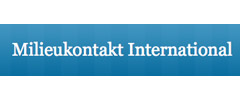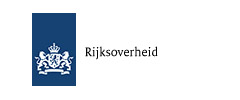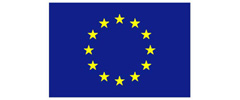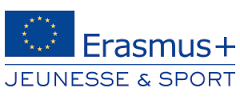Implementing SDG 5, 6 and 7 in Rural Uganda
Examples for gender-sensitive and sustainable WASH and energy systems and its implementation
12.07.2016 |

As part of the Kampala WASH Symposium, WECF's Ugandan partner ARUWE hosted an open house session June 20 at their premises. This was jointly organised with the 7th working group meeting of the Sustainable Sanitation Alliance (SuSaNa) and was attended by people from NGOs, business, GIZ and embassies.
Catherine Nabuuso explained the difficult situation of rural women's daily life. She comes from a village herself and benefits from the sustainable technologies which have been implemented recently by ARUWE, WECF and funded by Erbacher Foundation.
The biogas digesters and rainwater harvesting tanks are simple technologies and successful examples to implement the SDG 6 and 7 in the rural areas. It is better to take action ourselves through involving the local communities and not waiting for a water and energy service provider that might never appear, says Agnes Mirembe, ARUWE programme coordinator.
Gertrude Kenyangi, SWAGEN, explained the background of the SDG negotiations and how she has been active in promoting the gender related SDGs as they are key for sustainable development.
Claudia Wendland, WECF's water and sanitation specialist, as lead of SuSanA working group 7 introduced into some relevant SDG targets explaining the linkages to the WG7 topics.
SDG 6 including target 6.2 explicitly mentions women and girls to be targeted by sanitation services. The topic WASH in Schools is targeted by SDG 4 with target 4.a naming adequate sanitation facilities for schools. Target 6.b calls for involving local communities in water and sanitation programmes.
SDG 6.2: By 2030, achieve access to adequate and equitable sanitation and hygiene for all and end open defecation, paying special attention to the needs of women and girls and those in vulnerable situations.
SDG 4.a: Build and upgrade education facilities that are child, disability and gender sensitive and provide safe, non-violent, inclusive and effective learning environments for all.
SDG 6.b: Support and strengthen the participation of local communities in improving water and sanitation management.
SuSanA working group 7 contributed to this discussion from their perspective: now would be the right time to come up with relevant, measurable and meaningful indicators to monitor these targets.

Results of the brainstorms on the SDGs
Participants were asked to come up with their experiences and ideas what gender sensitive indicators in households and schools/kindergartens should look like. They worked in small groups and presented their brain storming results:
Individual household WASH monitoring looking at SDG 6.2 and b:
Community based WatSan committees should have 60% of women
Individual Toilets close to the home not more 30 m
Handwashing facilities close to the toilet
Decision making in society should include women
Indicator could be unpaid work for women carrying water, taking care of sanitation facilities
Disaggregated data for access to water and sanitation for women and men through household survey
WASH in Schools monitoring looking at SDG 4.a:
Education on both boys and girls
Awareness raising of boys so that they do not bully girls
Lobbying and advocacy for gender mainstreaming for WASH in Schools
Access to water not more than 500 m
Segregated toilet facilities
Monitoring enrollment of children, disaggregated boys and girls attending school
Washing hands percentage of girls and boys through survey and observation
Related to facilities in schools and kindergartens:
Inclusive WASH facilities in schools, in particular urinals, changing rooms, disposal bins, for disabled children
Kindergarten facilities needs to be child friendly, e.g. smaller seats for the kids
Involving MHM facilities in schools with pupils from 9 to 14-15 years, incl. emergency stock of sanitary provision, room for changing and to have a rest and/or to get pain killer, incineration for waste, especially the waste of menstrual hygiene
Availability of handwashing facilities, water and soap, water supply needed in the sanitation facilities in schools
Gender sensitive maintenance is important, if the pupils have to clean the toilets, girls should clean their and boys their own toilets
These discussion results will be fed into the online discussion in the SuSanA forum.
Related News
Meet the Winners of the Gender Just Climate Solutions Award at COP24
On the 70th anniversary of the Universal Declaration of Human Rights, we awarded Gender Just Climate Solutions Winners at the climate negotiations in Katowice, Poland
11.12.2018
A life without plastic, wouldn't it be fantastic?!
Interview with Charlotte Schueler of @PlastikfreiLeben, who lives a zerowaste life in Munich, Germany and shares her experiences to her 25.2 thousand followers on instagram & 37.2 thousand followers on facebook
14.09.2018
What to expect from the climate talks that resumed in Bangkok this week?
COP24: second intersession of the climate change negotiations 2018, Bangkok, Thailand
07.09.2018
Calling for periods free from plastic & hazardous chemicals
Letter to Frιdιrique Ries, MEP, European Parliament on behalf of the #BreakFreeFromPlastics movement
04.09.2018







































